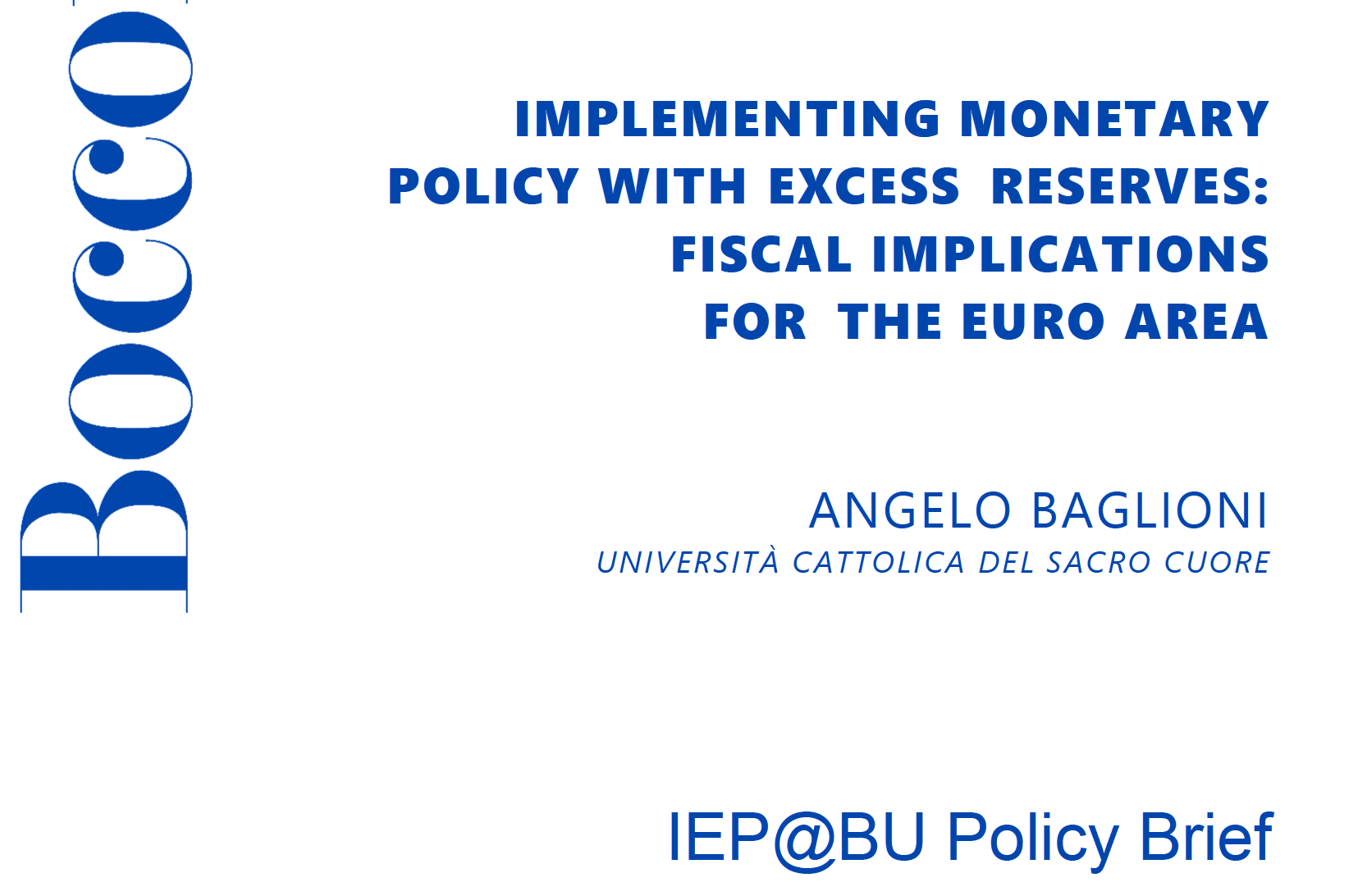Policy Brief - Implementing Monetary Policy With Excess Reserves, Fiscal Implications for the Euro Area
This paper shows that the current operational framework of monetary policy relying on excess liquidity, together with a high level of interest rates, produces a remarkable redistribution of interest payments across the national central banks of the Eurosystem, due to the rules governing the pooling of monetary income among them. This mechanism implies significant fiscal transfers across the member countries of the euro area. Our estimates for 2023 show that their size can be in the order of several billion euro.

-
FilePB13_ EURO AREA - BAGLIONI-3.pdf (544.31 KB)
This paper shows that the current operational framework of monetary policy relying on excess liquidity, together with a high level of interest rates, produces a remarkable redistribution of interest payments across the national central banks of the Eurosystem, due to the rules governing the pooling of monetary income among them.
This mechanism implies significant fiscal transfers across the member countries of the euro area. Our estimates for 2023 show that their size can be in the order of several billion euros.
A way to limit those cross-country subsidies would be to increase the unremunerated minimum reserve requirement: a solution that is likely to face the opposition from the banking sector, which presently benefits from a large interest income on the deposit facility.
This issue should be carefully considered in the current review of the ECB’s operational framework. Finally, the paper calls for a better alignment between the income pooling and risk-sharing rules, as far as the Eurosystem’s government bond holdings are concerned.
The topic of Angelo Baglioni's Policy Brief is particularly relevant, and the IEP@BU would like to collect different perspectives on how to deal with the policy questions that the Brief raises. If you want to be part of this debate, please email us.
IEP@BU does not express opinions of its own. The opinions expressed in this publication are those of the authors. Any errors or omissions are the responsibility of the authors.
